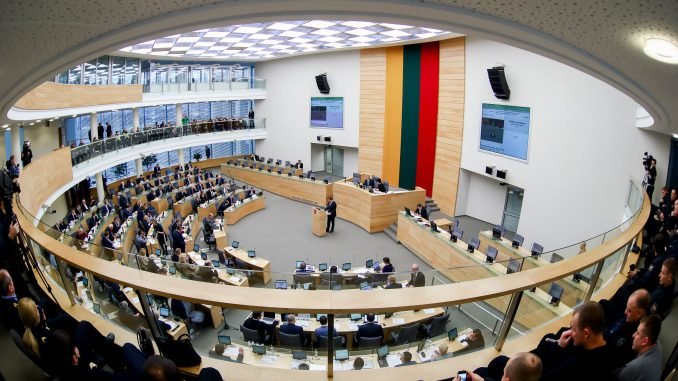
A relevant amendment was registered by members of the LFGU political group, namely, Ramūnas Karbauskis, Mindaugas Puidokas, Agnė Širinskienė and Tomas Tomilinas.
In Karbauskis’ words, LFGU aims to clear the doubts that have heightened in Europe on the different standards on GMO applied in the EU and Canada.
“Therefore, we decided to join the statement made by the European Commission, Slovenia, Poland and Belgium during the signing ceremony. This way, by taking on new international commitments, we will make sure that Lithuanian consumers receive only the highest-quality food products meeting EU standards, at the same time we will defend our agricultural sector,” Karbauskis said in a press release.
In Puidokas’ words, statements by countries are a usual practice in such agreements.
Under the amendments, Lithuania acknowledges that the EU-Canada deal will not have an impact on EU laws in connection to sanctioning GMO and products obtained as a result of new breeding technologies, their entry into the market, breeding and labeling, and member-states keep the right to restrict or ban GMO in their territories.
The party also suggests that Lithuania should state that meat originating from third countries, including Canada, could only be imported in Lithuania, if the countries comply with all EU imports conditions.
The EU-Canada Comprehensive Economic and Trade Agreement (CETA) was submitted for parliamentary ratification last spring, however, stalled at the Health Affairs Committee that awaited a conclusion from the EU Court of Justice.
The treaty between the EU and Canada lifts 98 percent of customs duties. Critics fear that enforcement of the document will flood Lithuania with cheaper genetically-modified products.
Lithuanian diplomats had hoped the deal would be endorsed in the summer of 2017.

Be the first to comment